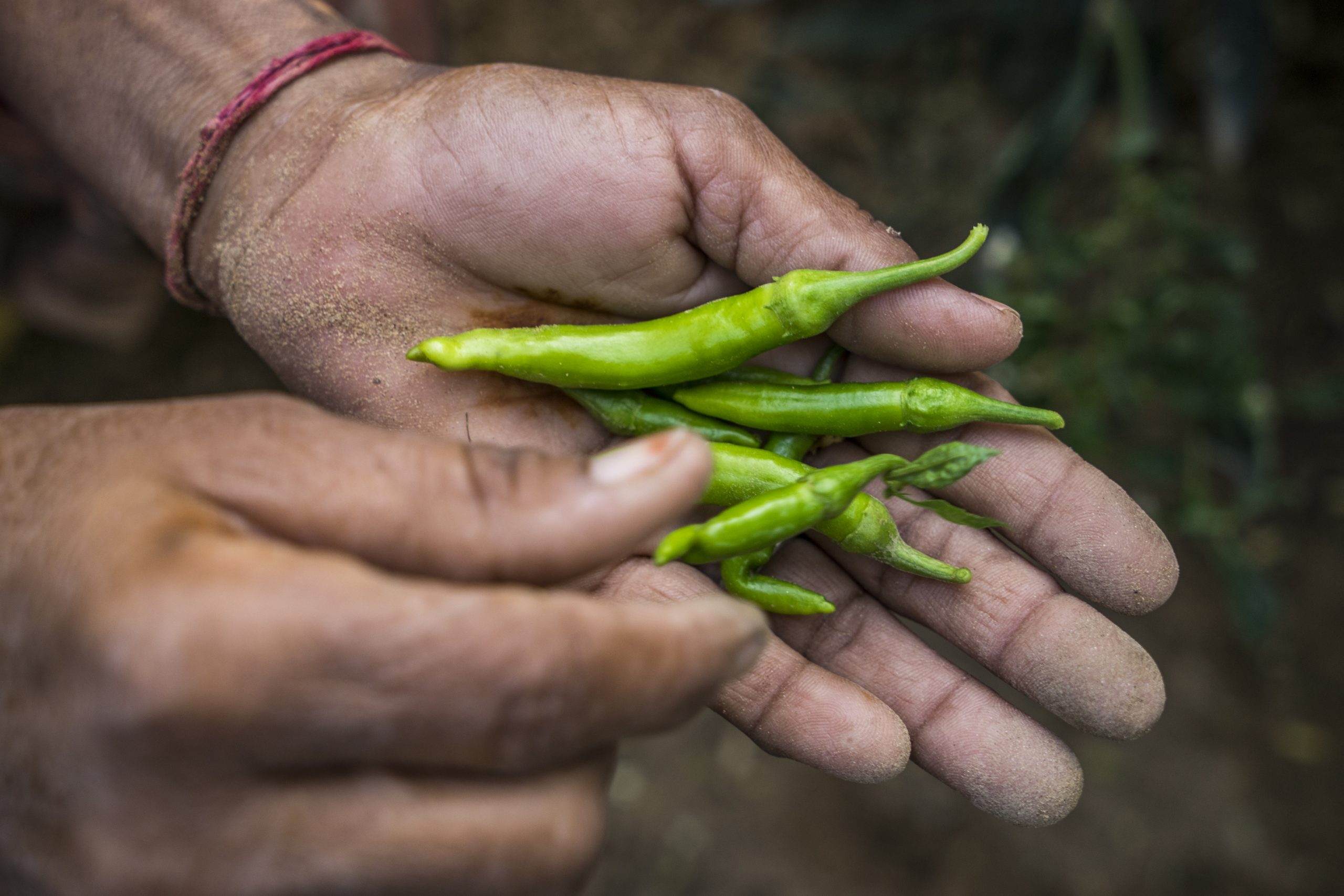One Year of COVID-19: N. Mangamma, Small-Scale Farmer in India
In this series, we check back with TechnoServe program participants previously featured on our blog, documenting how their lives have changed and progressed. In our previous story on N. Mangamma, a small-scale farmer in India, she was learning how to supplement her income and improve her family’s nutrition by planting kitchen gardens. Find out how she is doing now, eight months later.
N. Mangamma is one of many small-scale farmers in southeast India who have seen their lives change drastically in the last year. At the beginning of the COVID-19 pandemic, the government issued a country-wide lockdown to contain the virus, which had immediate repercussions for farmers around the country.
In rural India, farmers not only experienced a loss in livelihoods due to the shutdown of wholesale agricultural markets, but the supply chain disruptions and restrictions on movement also prevented most of them from accessing even basic commodities, such as groceries and common household goods.
The nationwide COVID-19 lockdown posed a severe challenge for small-scale farmers like me. All my farm-related work was halted during the lockdown. We were asked to not go out by the local authorities, and the only time we used to step out was for extremely urgent work…Since there was no information on when this would be over, the situation had me very worried — both about getting infected by the virus and about how we would sustain ourselves for the coming months.”
— N. Mangamma, farmer in India
Support for Small-Scale Farmers in India
Since 2019, TechnoServe has worked to improve the livelihoods of over 18,000 smallholder farmers in Andhra Pradesh, India, through the Sustainable Livelihoods for Smallholder Farmers program — made possible by grant funding from Walmart Foundation.
The project aims to improve the income of smallholder farmers by strengthening farmer producer organizations (FPOs) and transforming them into sustainable enterprises that link producers to stable, profitable markets for their crops.
Kitchen Gardens Improve Food Security for Small-Scale Farmers in India
One aspect of the program involves teaching farmers how to create organic kitchen gardens — small plots of land located close to people’s houses where they can grow an assortment of fresh produce. In normal times, these gardens help families access a reliable supply of nutritious food, and many farmers sell their excess produce for additional income. During the pandemic, they have become even more important.
“The lockdown is necessary right now, and we go to the market only during absolute emergencies,” explained Mangamma in our original post from August 2020. “Thankfully, I can depend on my kitchen garden to provide vegetables for the family. I can also save between $10.70 and $16.05 every month because I don’t need to purchase these vegetables from the market anymore.”
Through the program, TechnoServe has organized training sessions, distributed seeds, and provided support to over 450 women farmers from 20 villages in the regions of Paderu and Chintapalli of Visakhapatnam district. The team distributed eight varieties of vegetable seeds, including eggplant, tomato, green chilies, french beans, cowpea, radish, amaranth, and spinach.
TechnoServe’s training helped me realize a higher yield and an improved quality of vegetables. Not just this, the team has also helped me become a member of an FPO, through which I get regular price information on the crops I grow. I don’t have to rely on selling to the local markets anymore. Additionally, I’ve also been taught how to prepare parchment coffee, which will help in fetching a higher price this season. Having said that, the most important thing is that the team has made me, and many women like me, self-reliant when it comes to food, especially during these tough times.”
— N. Mangamma, farmer in India

Planning for the Future
Today, N. Mangamma has expanded her kitchen garden and is able to contribute to regular household expenses, including the education of her two children. Each month, she also has money left over to contribute to a local self-help group as an investment.
“Following TechnoServe’s training on organic kitchen gardens, I hope to expand this further and start selling more organic vegetables…I want to diversify and grow more varieties of vegetables and further scale up my kitchen garden,” she says. “Working hard is the only thing that allows me to put food on my children’s plates. I feel that is the strongest motivator for anyone. I also want to see my children secure good jobs in the future, and for that, I need to earn now so I can take care of their educational expenses.”




